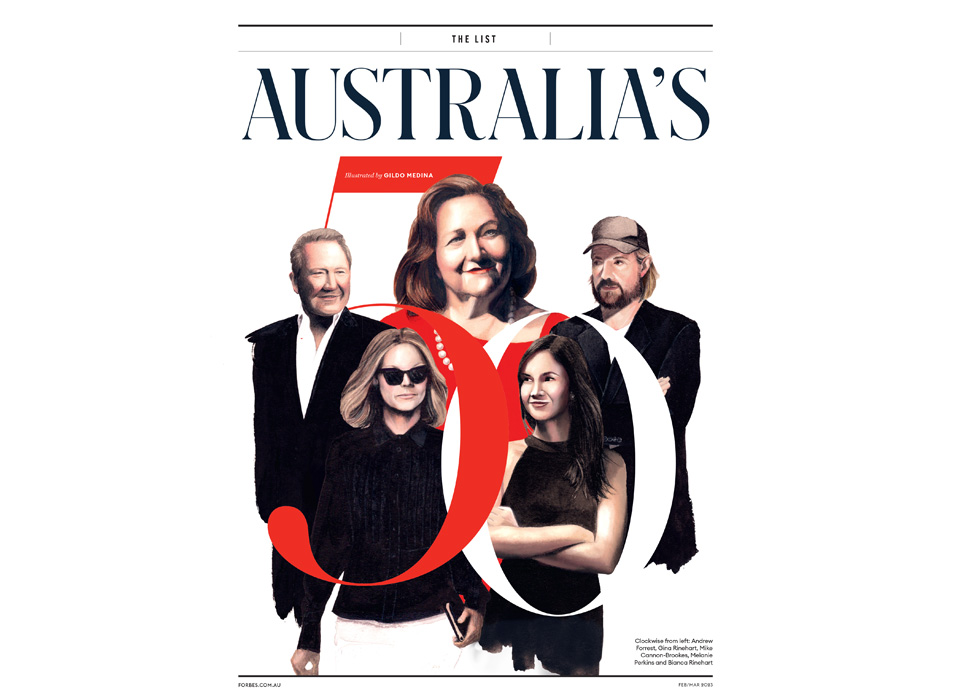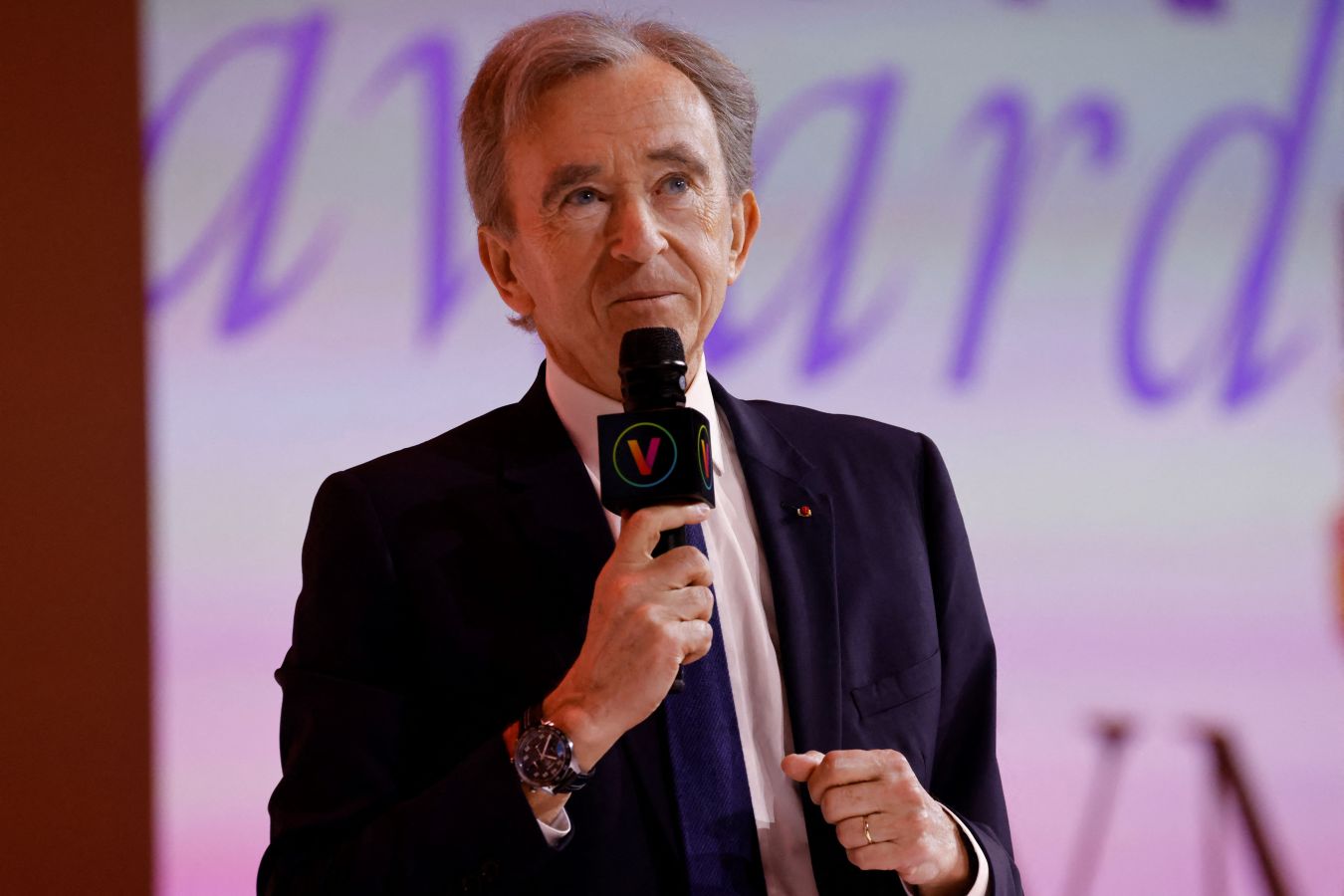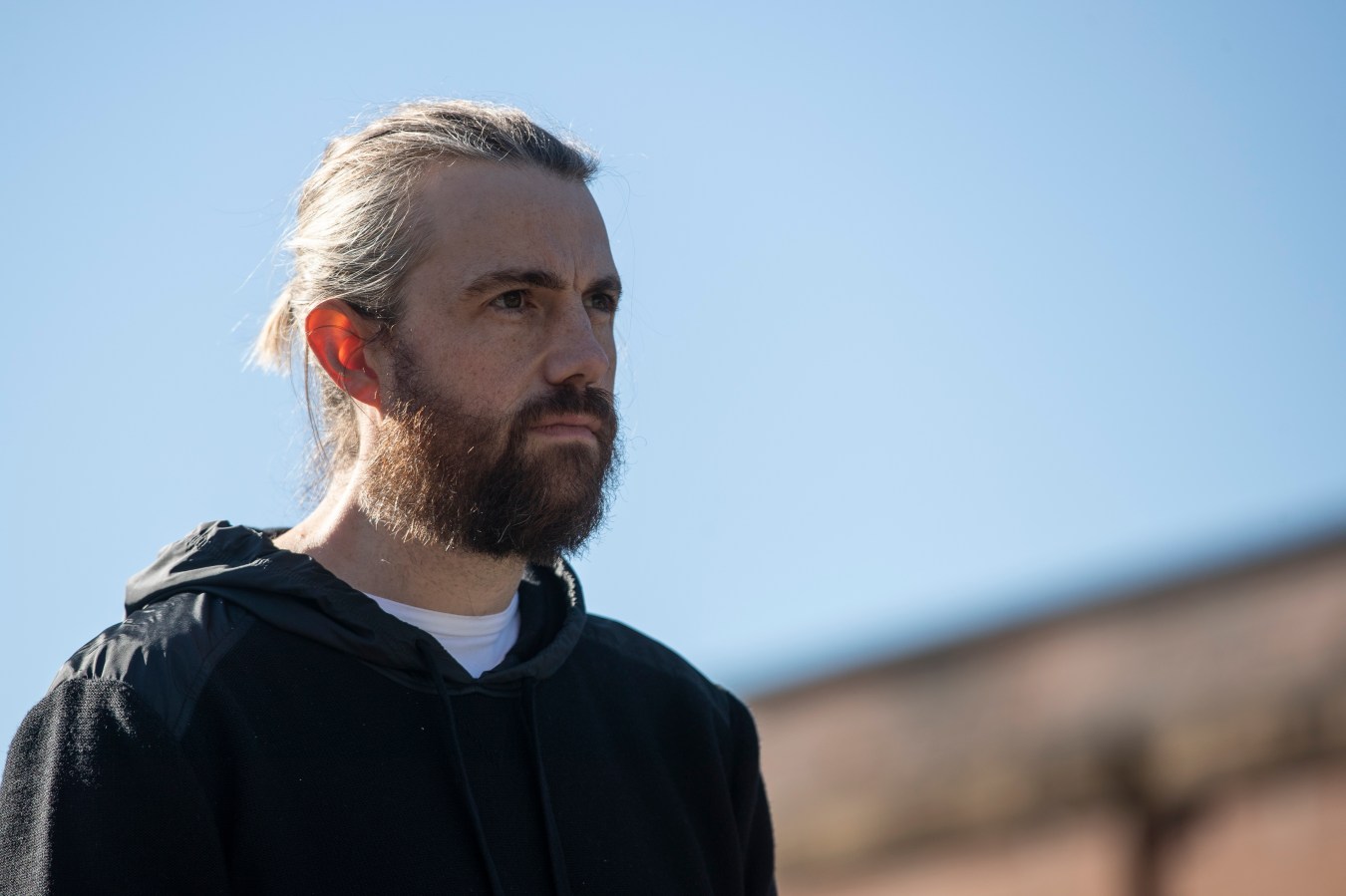Australia’s 50 Richest 2024
The iron economy remains unshakeable.
EDITED BY Naazneen Karmali, Forbes Staff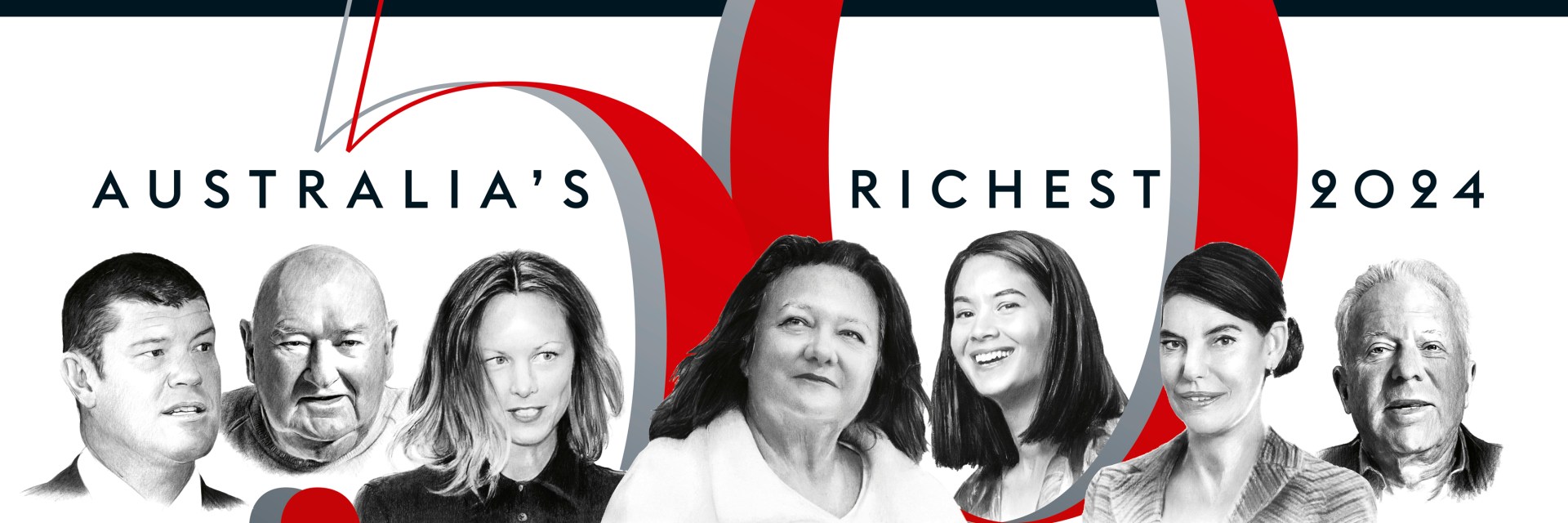
Australia’s 50 Richest hits stands Thursday, February 22. Tap here to secure your copy.
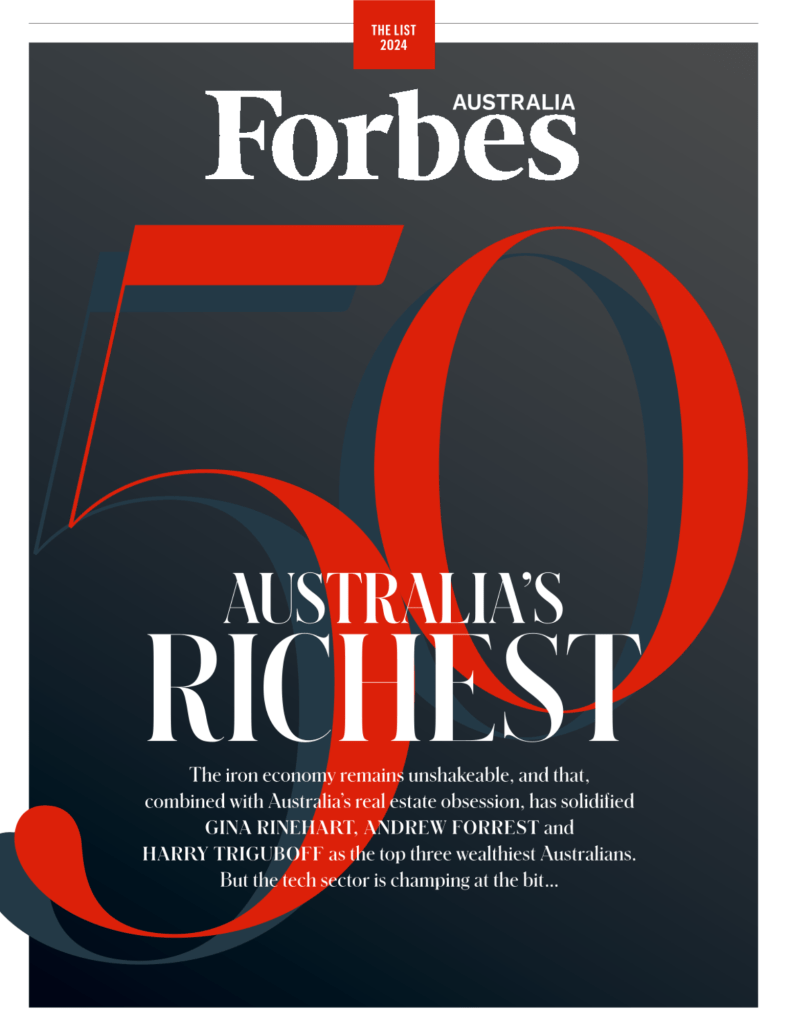
All dollar values are in USD.
Surmounting the challenge of a weaker currency, Australia’s 50 richest tycoons are collectively better off than from a year ago. They added US$9 billion, or around 4%, to take their combined wealth to US$222 billion.
Fortunes drawn from iron ore, an export mainstay, remain unshakeable at the top. Mining magnate Gina Rinehart held on to her long-standing position as the country’s richest person, though her wealth dipped slightly to $30.2 billion. In recent months, Rinehart has been busy dealmaking to expand her interests in lithium, the metal used in EV batteries.
In second place with $21.5 billion is mining baron Andrew Forrest, who, in keeping with his green agenda, has reportedly committed to producing 14 gigawatts of clean energy by 2030. Forrest’s wealth is now listed as a family fortune to reflect the interests of his wife, Nicola, from whom he separated last year. A month before their split, they donated Fortescue shares worth $3.4 billion to their foundation.
The country’s housing shortage benefited property magnate Harry Triguboff, nicknamed “High-rise Harry” for the multitude of residential towers built by his firm Meriton. The nonagenarian, who remains at No. 3 with a net worth of $16.2 billion, is the second-oldest person on the list. The oldest is gaming tycoon Len Ainsworth, who turned 100 last July.
A tech recovery propelled software billionaires Mike Cannon-Brookes and Scott Farquhar back into the top five ranks at No. 4 and No. 5, respectively. Shares of their Sydney-based Atlassian rose by nearly a third since last year as its client base surpassed 300,000 and it notched $1 billion in revenue in a recent quarter. (Cannon-Brookes separated from his wife Annie last year.)
Overall, 22 fortunes were higher than a year ago. A recent markup in the valuation of design outfit Canva boosted the net worth of its three co-founders: husband-and-wife Cliff Obrecht and Melanie Perkins, whose wealth jumped 22% to $8.8 billion, while that of chief product officer Cameron Adams rose to $2.2 billion.
The mining and tech sectors produced two returnees to the list. Malaysian-born coal miner Sam Chong, whose privately held Jellinbah group owns mines in Queensland, makes a comeback after more than a decade with $1.6 billion. Chris Morris, cofounder of share registry Computershare, who stepped down from the board in 2021 and is now focusing on his hospitality outfit Colonial Leisure Group, returns at No. 50 with $1 billion.
There are two new entrants this year: sisters Alexandra Burt and Leonie Baldock, who are the nieces of mining heiress Angela Bennett and inherited shares in Perth miner Wright Prospecting. The Walker family consists of the heirs of billionaire property developer Lang Walker, who died in January at age 78, leaving behind a portfolio of prime assets in Sydney, Melbourne and Adelaide under privately held Walker Corp.
Three from last year dropped off, and the cut-off to make the list increased to $1 billion from $960 million.
Editing assistance and reporting by Anuradha Raghunathan. Additional reporting by Gloria Haraito, Phisanu Phromchanya, Jessica Tan, Hank Tucker, Jennifer Wells and Shivaune Field.
Australia’s 50 Richest is sponsored by CMC ALPHA
Seek independent advice and consider the relevant Terms and Conditions at cmcmarkets.com.au when deciding whether to invest in CMC Markets products. CMC Markets Stockbroking Limited (ABN 69 081 002 851 AFSL No. 246381).
Australia’s 50 Richest 2024
This list was compiled using shareholding and financial information obtained from the families and individuals, stock exchanges, annual reports and analysts. The ranking lists both individual and family fortunes, including those shared among relatives. Private companies were valued based on similar companies that are publicly traded. Public fortunes were calculated based on stock prices and exchange rates as of Feb. 2, 2024, and adjustments may have been made for some stocks that are thinly traded or have a low public float. The list can also include foreign citizens with business, residential or other ties to the country or citizens who don’t reside in the country but have significant business or other ties to the country. The editors reserve the right to amend any information or remove any listees in light of new information.
NOTE: ALL DOLLAR VALUES ARE IN US DOLLARS (USD)
Editing assistance and reporting by Anuradha Raghunathan.
Additional reporting by Gloria Haraito, Phisanu Phromchanya, Jessica Tan, Hank Tucker, Jennifer Wells and Shivaune Field.
